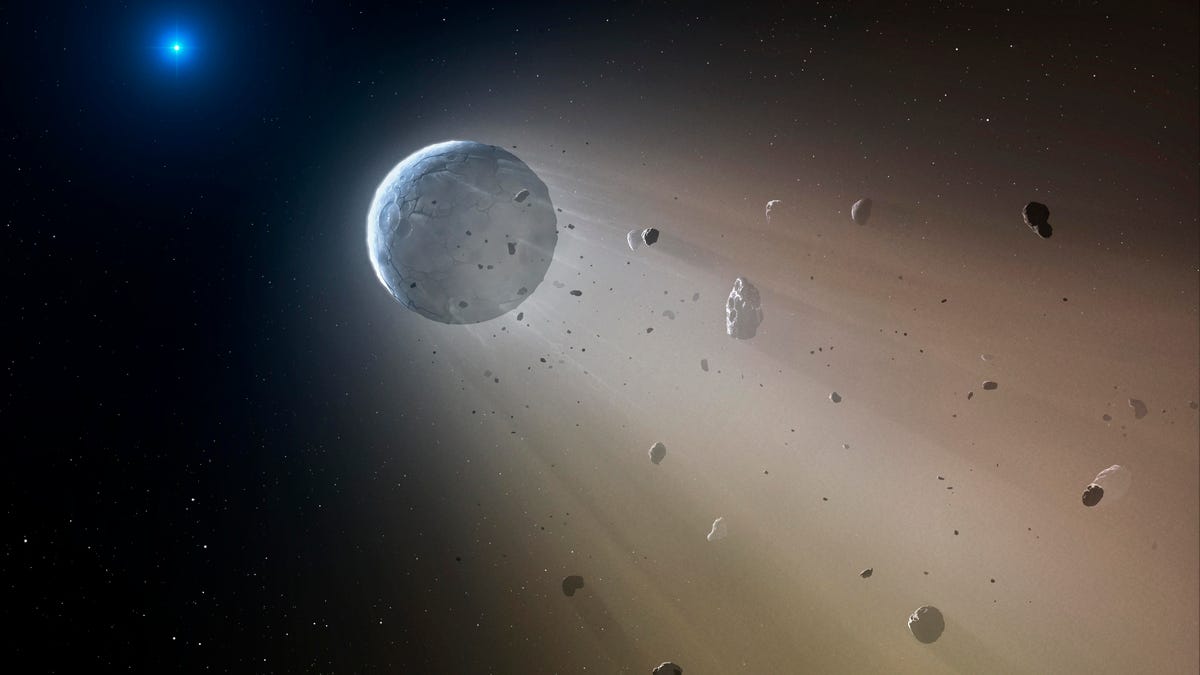Dead planets send out zombie signals that can be heard on Earth
They've been destroyed by their suns but still sing a sad song. And one day it's going to happen here, too.

Artist's concept of a white dwarf and a disintegrating planet nearby.
Distant, dead planets stripped down to their cores by the stars they orbit still broadcast their presence to the cosmos, and scientists are hoping to tune in.
When certain stars, likely including our own sun, reach the end of their lifespan they can expand into a red giant that burns all nearby planets to a crisp, leaving just orbiting metallic cores. The huge star then sheds its own outer layers, transforming into a dimming remnant called a white dwarf.
The magnetic field between a white dwarf and the lingering core corpses of orbiting former planets can form a circuit that emits radio waves, which can be picked up by radio telescopes here on Earth.
Now, a team that includes the co-discoverer of the first exoplanets is planning to search for these creepy dead planets by detecting their zombie radio signals.
"Nobody has ever found just the bare core of a major planet before, nor a major planet only through monitoring magnetic signatures, nor a major planet around a white dwarf. Therefore, a discovery here would represent 'firsts' in three different senses for planetary systems," explains Dimitri Veras from the UK's University of Warwick in a statement.
Veras, along with Pennsylvania State University Professor Alexander Wolszczan -- co-discoverer of the first confirmed exoplanet back in the 1990s -- has published research in the Monthly Notices of the Royal Astronomical Society that outlines which white dwarf stars are the best candidates to check for the broadcasts from beyond the planetary grave.
"We think that our chances for exciting discoveries are quite good," Wolszczan said.
Those discoveries might turn out to be both exciting and eerie, because our own planet is also likely to wind up a dead hunk of metal transmitting into the void a few billion years from now. Hopefully by then, we'll be jetting about to different star systems that haven't yet gone all zombie radio.

